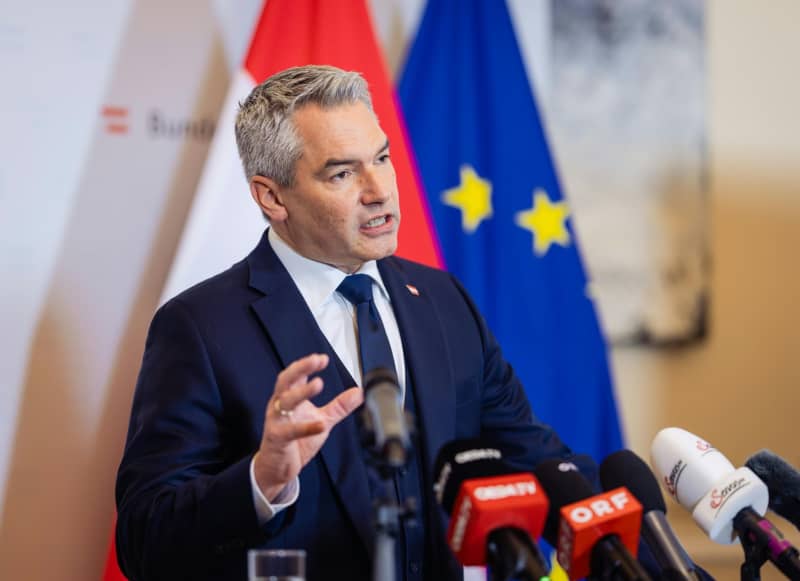Austria’s commitment to its policy regarding Ukraine remains unwavering, despite a recent escalation in tensions with Russia marked by the cessation of gas deliveries to the nation. Chancellor Karl Nehammer publicly affirmed this stance, emphasizing that Austria will not succumb to coercion or pressure from Russia. The abrupt halt in gas supplies was announced by Gazprom Export, a subsidiary of Gazprom, and is widely interpreted as a direct response to an arbitration ruling by the International Chamber of Commerce. The ruling favored Austrian oil and gas company OMV, awarding it €230 million ($242 million) in a contractual dispute with Gazprom, thereby intensifying the already strained energy relations between the two countries.
Chancellor Nehammer’s remarks reflect a firm resolve against what he describes as Russia’s attempts to manipulate energy supplies as a means of exerting political pressure. He pointed out that Gazprom has a history of failing to meet its contractual obligations, suggesting that such actions are tied to Austria’s support for EU sanctions against Russia. This pattern of behavior from Gazprom underscores the geopolitical dimensions of energy security, as countries in Europe grapple with the implications of their dependency on Russian gas and the broader context of the ongoing conflict in Ukraine.
Reassuring the public, Nehammer stated that there is no reason for Austrians to fear a loss of heat in their homes during the winter months. He emphasized that Austria retains sufficient gas reserves to meet domestic needs, and even asserted that the country’s gas consumption is not critical to the stability of the European energy market at large. This assertion was intended to instill confidence among the populace, ensuring them that the government has taken necessary measures to secure energy supplies even in light of the current crisis.
The chancellor’s statements come at a time of heightened awareness of energy security across Europe, as nations reevaluate their reliance on Russian energy amid the ongoing conflict in Ukraine. For many European countries, including Austria, the dilemma lies in balancing national energy needs while also supporting collective actions against Russian aggression. Austria’s decision to continue its support for Ukraine and uphold EU sanctions illustrates a commitment to European solidarity, even when faced with potential repercussions from Russia.
In response to the gas supply stoppage, discussions regarding alternative energy sources and diversification strategies are likely to gain momentum in Austria and across Europe. Policymakers are being urged to explore viable solutions that reduce dependency on Russian fossil fuels and enhance energy independence. This shift may include investments in renewable energy sources, increased collaboration with other energy providers, and enhanced energy efficiency measures.
Overall, Austria’s determination to maintain its stance on Ukraine and oppose Russian pressure reflects broader trends in European geopolitics, wherein energy security is increasingly intertwined with national security and foreign policy. As Europe navigates these complex challenges, the events surrounding Austria’s energy situation will likely serve as a critical case study in the intersection of energy dependency, international relations, and strategic resilience in the face of geopolitical adversity.

